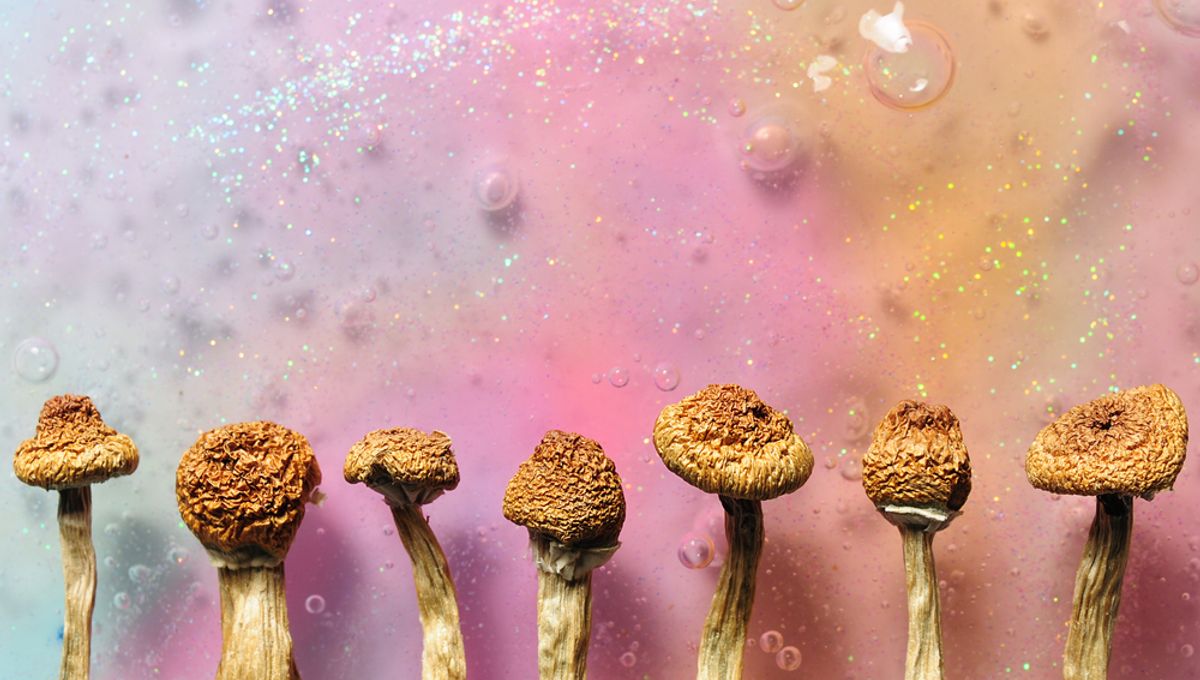
Microdoses of psilocybin – the psychoactive compound in magic mushrooms – have been found to normalize certain elements of cognitive performance in young rats with autism. And while it’s far too early to say if the drug produces the same benefits in humans with autism spectrum disorder (ASD), the fact that larger doses of psilocybin were less effective in rats does at least lend some credibility to the controversial topic of psychedelic microdosing.
The study authors conducted their experiments on rodents with a genetic disorder called fragile X syndrome (FXS), which is the leading monogenic cause of ASD in humans. Triggered by a mutation within the FMR1 gene, FXS results in an inability to produce a key protein involved in brain development and is associated with intellectual disability, hyperactivity and anxiety.
So far, few effective treatments for the manifestations of FXS have been developed, although research has shown that the neurotransmitter serotonin plays a key role in neurodevelopment. This has led some scientists to speculate that serotonin may also be involved in ASD.
For example, in neurotypical children, serotonin levels peak between the ages of two and five, when synthesis of this key transmitter chemical is roughly double that seen in the adult brain. However, serotonin production tends to be considerably lower in autistic children, and increases gradually over the years rather than racing towards a peak in early childhood.
Low serotonin concentrations also correlate with more severe FXS symptoms, including increased aggressive and stereotypic behaviors. However, because psilocybin and other psychedelics exert their effects primarily by activating the brain’s serotonin receptors, the study authors hypothesized that the drug may help to alleviate some of these deficits.
They began by administering a relatively large dose of psilocybin to rats with FXS and healthy controls. Eight days later, the rodents were assessed using a task called the novel object recognition test, which measures perception, recognition and exploratory behavior.
Rats with FXS performed slightly better at this test following their psilocybin experience, although they still lagged behind the healthy controls. Somewhat unexpectedly, animals that didn’t have FSX actually performed worse after receiving psilocybin, prompting the study authors to repeat their experiment using microdoses.
The concept of psychedelic microdosing involves the regular ingestion of tiny quantities of psychoactive drugs that aren’t large enough to produce any noticeable alterations of consciousness, yet which may help to treat depression, boost creativity and enhance cognition. Hugely popular among Silicon Valley executives and entrepreneurs, the practice has yet to be scientifically validated and is supported only by anecdotal evidence.
After microdosing their FXS rats with psilocybin on alternate days over five days in total, the researchers found that the animals’ cognitive impairment was completely corrected during the novel object recognition task. They then put the rodents on a two-week microdosing course, with the same outcome.
“These data support the hypothesis that serotonin-modulating drugs such as psilocybin may be useful to ameliorate ASD-related cognitive deficits, particularly those pertaining to exploration,” write the study authors. Furthermore, they say that their work “provides evidence of the beneficial effects of different schedules of psilocybin treatment in mitigating the short-term cognitive deficit observed in a rat model of FXS.”
How long these improvements might be sustained for, and whether or not similar effects can be expected in humans, is currently unknown. Despite this, the authors say that “based on previous evidence showing enduring effects of psychedelics, it is tempting to speculate that the ability of psilocybin microdoses to mitigate the short-term memory deficits displayed by [FXS] rats in the novel object recognition task could be long-lasting.”
“However, further studies are needed to support this possibility,” they say.
The study is published in the journal Psychopharmacology.
Source Link: Magic Mushroom Compound Ameliorates Some Cognitive Deficits In Autistic Rats